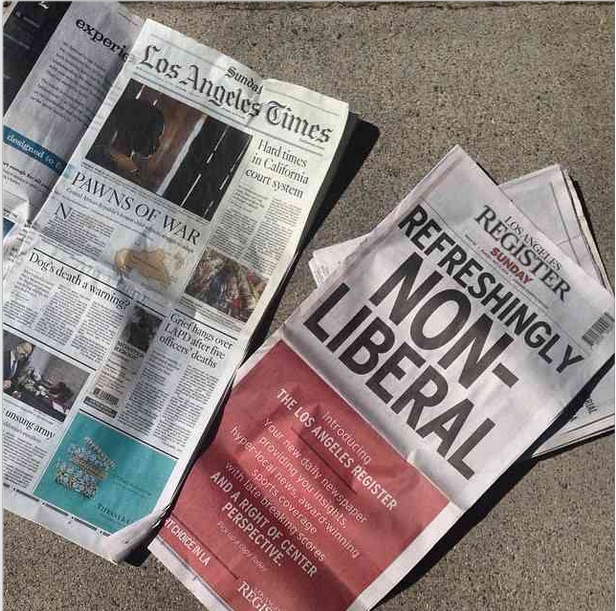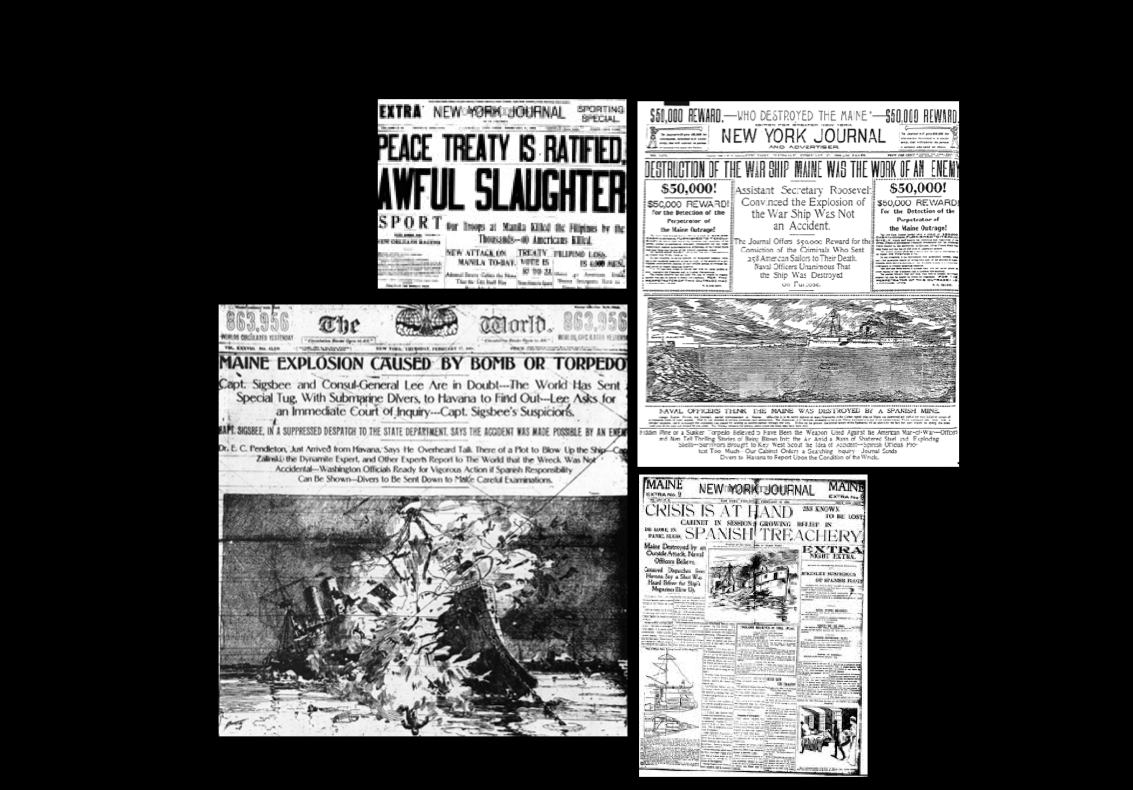

The first real newspaper war was between the New York World and the New York Journal
It was a tweet from Raju Narisetti, Senior Vice President and Deputy Head of Strategy for News Corp that alerted me to the alleged war between the Los Angeles Times and new kid on the block Los Angeles Register, an offspring of the Orange County Register.
This one would be a newspaper war fought along ideological lines, as in The Register claiming in big letters, on Page One, mind you , that is “Refreshingly Non-Liberal”.
I wonder where this newspaper war of the 21st century will take us, and what it will do to enhance the journalism of both titles.
I still remember studying the history of American journalism, and, particularly, the bitter and extremely real newspaper war that probably defined the term. It was a daily duel between the newspapers owned by two men whose names are synonymous with American journalism: Joseph Pulitzer and William Randolph Hearst.
Pulitzer owned not only the New York World but also the St. Louis Post-Dispatch. Hearst owned the New York Journal.
It was the Spanish American War that, according to scholars, that created the first and ultimate newspaper war.
William Randolph Hearst thought that a war with Cuba could sell papers, especially with the right formula of melodrama, romance and a little bit of exaggeration.
So, Hearst planted star reporters in Cuba who wrote stories designed to tug at the heartstrings of Americans. Stories appeared daily about female prisoners, executions, courageous soldiers. After the sinking of the Maine, in the port of Havana, the Hearst newspapers blamed the Spanish, and soon U.S. public opinion demanded intervention.
The competition was on between the World and the Journal, and the Spanish American War provided the material for the two dailies to go head to head.
Recent newspaper wars
Most recently, we have witnessed episodes of newspaper wars in New Orleans, between the Times' Picayune and New Orleans Advocate.
On May 24, 2012, New Orleanians got the news that the 177-year old Picayune would cut back on publishing to three days a week, making the city the first major U.S. market to go without a daily. Sensing an opportunity, the Advocate, based in Baton Rouge 80 miles north, started a New Orleans edition that would be home-delivered daily. A few months later, the Picayune counterpunched, launchingTP Street, a tabloid sold at coin boxes and stores on days the Picayune doesn't come out.
And, in New York City, in 2010, The Wall Street Journal launched its New York section today, sparking a slugfest with The New York Times. As a current resident of New York City who reads both newspapers, I don't think it is much of a newspaper war, anyway.
Maybe a bit of a scare at first, but nothing that has given the Times anything beyond a case of the hiccups.
So let's see what happens between the Los Angeles Times and the Los Angeles Register. Whatever takes place, it could probably never compare to the real newspaper war between the Hearst and Pulitzer newspapers.
To think that there could be a newspaper war in 2014 is reassuring, not to mention a bit of good news. Let the dog fight begin. We will keep an eye on it.